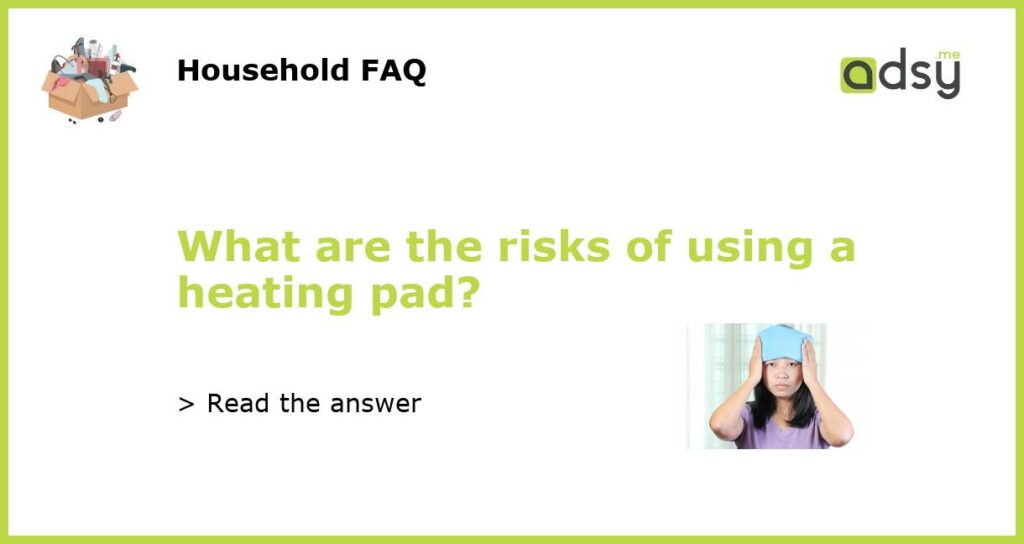The Risks of Using a Heating Pad
Heating pads are a popular at-home remedy for pain and discomfort. They are often used for menstrual cramps, muscle pain, and joint pain. However, the use of heating pads comes with potential risks that many people may not be aware of. In this article, we will discuss the primary risks associated with using heating pads and how to minimize their impact on your health.
The Dangers of Burns
The most common and severe dangers that come with using heating pads involve burns. Heating pads can cause burns when they are used for too long or are set too high. These injuries can be severe and long-lasting, leaving permanent scars in some cases. Burns can occur on the surface of the skin or deep in the tissue layers, and they often require medical attention. It is essential to follow instructions carefully when using heating pads and to avoid using them while sleeping or under blankets, which can make the heat too concentrated and increase the risk of burns.
Increased Risk of Injuries
Using a heating pad can also lead to an increased risk of injuries, especially in older adults or those with mobility issues. The heat can cause dizziness, fainting, or falls, which can result in fractures, head injuries, or other severe consequences. It is crucial to be cautious when using a heating pad and to avoid using it in situations where you may need to stand up suddenly or move quickly, such as in the shower or when getting dressed.
Side Effects of Prolonged Use
Using a heating pad for extended periods can cause side effects such as skin irritation, dehydration, and fatigue. It is essential to limit the use of heating pads to no more than 30 minutes at a time, with at least an hour break in between uses. Continuous use can also reduce the effectiveness of the heating pad by desensitizing the body to heat, making it less effective over time.
Alternative Treatments
There are alternative treatments for pain and discomfort that are safe and effective without the risks associated with heating pads. Ice packs are an excellent alternative for injuries or inflammation, while massage therapy, acupuncture, and physical therapy can be effective for chronic pain. Always consult with your healthcare provider before starting any new treatment regimen, and never use a heating pad without first reading the instructions carefully and taking steps to minimize the risk of injury.






